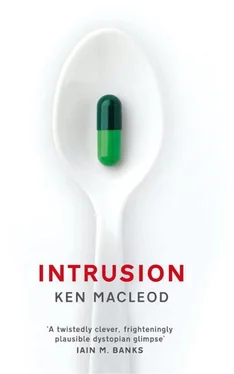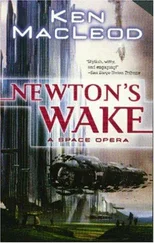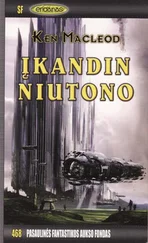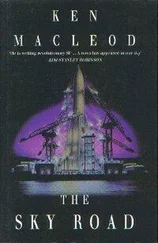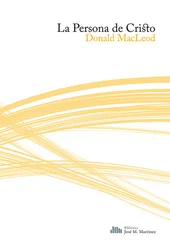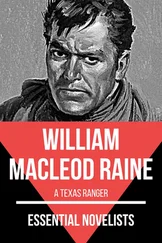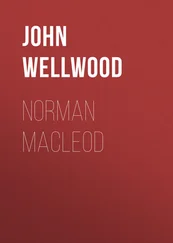The Leosich had a name for the phenomenon, he’d learned on oblique enquiry. They called it the second sight. That sounded natural enough to satisfy the strictest materialist – and, indeed, the Leosich saw nothing supernatural in the phenomenon. It was simply a gift some people had, no more remarkable than any other talent. It even followed the rules of Mendellian inheritance for a recessive gene, which (Hugh thought) quite possibly explained its former incidence among the locals.
There was a reason why his enquiry had to be oblique.
At Ealing, Hugh turned off the Broadway and around a few corners into Bidwell Crescent, a long residential side street of Victorian-built semi-detached houses. It differed from his own street, Victoria Road, in that it was three times longer, the houses were built of red brick rather than sandstone, most of them didn’t have basement flats, and about a third of them were empty: doors barred with nailed cross-planks, windows masked with charred and spray-bombed chipboard, front plots or patios choked with weeds that in turn were being choked out by the fast-growing saplings of New Trees whose branches’ shapes – circular or rectangular, smooth or serrated, soft and pale or hard and dark – indicated to Hugh’s practised carpenter’s eye the type of product-plantation from which their seeds had (somehow, despite much small print and large promises) escaped.
He pulled in at number 37 and swung off his bike. He lifted the bike on to one shoulder and trotted up the steps to the door, which was already open. A buzzing in the sky made him glance up, though he knew what it was. He always looked back at police drones. This one, he watched out of sight, over the rooftops to the west. It was the drones you didn’t see you had to worry about. These flew at fifty thousand feet and struck without warning. This one was no doubt just keeping an eye out for Naxal pop-ups in Southall.
Inside, the floorboards were gritty with cement spatters and soft with dust. The stairway had been torn out. Access to the first floor was by ladder. Hugh parked his bike behind a stack of paint tins, unfurled his overall and climbed into it, and set his dust mask on his forehead. The elastic tugged at his neck hairs, then settled. He followed the Radio One sound into the front room, waved at Ashid the plasterer, backed out and stepped into the kitchen. The kettle was not long boiled. Hugh brewed up an instant coffee in the unwashed mug he’d used the day before, and ambled into the dining room. There, he stood and sipped for five minutes, contemplating. The electrics were in place. Ashid had finished the plastering and painting. The floor was a tip. All that remained to be done was the woodwork. Its raw material was most of what made the floor a tip. Hugh’s tools, trestles and workbench, and some rubble and splashes from Ashid’s work, made the rest.
Cornices. Window frame. Door frame. The overmantel. Skirting boards. Their components had been grown to function, and now had to be cut to size and fixed in place. Hugh put his empty mug down on the raw windowsill and got to work. Through the morning the music from the radio trickled in whenever he paused. On the hour the news updates came: the war, the weather. The war was spreading from India and the weather was coming from Russia. Overshadowing both: the Warm War. No change.
Aberdeen. A city making a sharp turn, from oil rigs to windmills, with bits flying off – jobs, businesses, whole districts – from the centrifugal force of the swerve. A city of sharp edges, with a hole at its heart. You came out of the station and found yourself facing roadways, flyovers, walls; you had to walk half a kilometre and turn corners just to find shops. Apardion, the Vikings had called it, and Hugh liked that name. It called to mind a cold and barbaric past, like something out of the Conan stories, out of the Hyborean Age – itself named after the Greek word for the people of the far north, the Hyperboreans, the folk from beyond the north wind. The people in the sunshine beyond winter…
The barbarian he’d seen last night, for instance – he could have been a Hyperborean. Aberdeen, when Hugh and Hope had been students there – that had been Hyperborean too. That summer. The last good summer. The last one when you could feel the Earth’s warming in your bones. Ever since, you could see the warming on television and online, you could see the droughts and dustbowls and bergs, but you couldn’t feel it. What you felt was cold and damp. Hugh remembered taking the bus with Hope from the campus into town on what now seemed like many long, warm evenings, talking non-stop through the ride, walking and then reeling between the remaining city centre pubs, and taking the bus back after midnight with the sky still bright to the north and a half-light gloaming at street level when the nightly hours-long power cut had extinguished all the street lamps.
How keen he’d been then to learn, to graduate, how eager he’d been to get to work, to get the wave and wind turbines turning! Green power to pick up the slack and fill the gap left by the black coal and the peak oil and the unbuilt dirty nukes. And then, wham , sudden as a mine closure, solar panels had started spreading across the Sahara like lily pads, powering half of Europe and the African Lion economies into the bargain, and syn bio tech had come on stream, springing full-grown from the bench like the Incredible Hulk bursting his lab coat, a great green monster that sucked carbon from the air and sprouted wood, pissed oil, and shat diamonds.
Hugh found his gaze wandering to some uninstalled window panes out in the lobby. Precisely sized to fit the frames – you couldn’t cut the panes. There was nothing to cut them with . You could cut glass with diamond, but these panes were diamond. Laminated industrial sheet diamond. The very existence of such a thing still astonished Hugh. He’d read all kinds of excited speculation about its possible applications as a new structural material, but the diamond age was still a long way off. The stuff could still only be made in laminated sheets, or thin films like the surface layers of Hope’s work glasses. Even as sheets, though, it was already being used in America for far more than windows: there, you could buy entire prefabricated houses as kits – walls and windows and roofs – and just glue the slabs together. This would come here, he knew, before too many years had passed. It would not be long before the whole of a house would be pre-shaped diamond and new wood, and its assembly a job that any clueless householder could do with an Allen key and a tube of superglue, like flat-pack furniture from IKEA. And then building-site work would be – what? Digging a hole and maybe laying foundations.
When Hugh had been a lad, back on the wind-power farm where his father was an engineer, he’d looked up to the labourers. The steady labourers, that is, not the natives like Murdo Helmand of the glass eye, who when he wasn’t working simply drank. A lot of the Leosich were like that: they worked when they felt like it, and the rest of the time they drank. They got around the prohibitive alcohol taxes by distilling their own spirit, a harsh thrapple-burning usquebaugh they called peat-reek. Others – or sometimes the same people; the groups overlapped, or alternated, serially – frowned on the drink and went to church and sometimes under the preaching they got the curach , the concern about their souls, and after moping for a while found that God had their names in His book, and they changed their ways. They gave up the peat-reek and the ceilidh and the poaching. But they never shopped the location of the illicit stills and the smoky bothans, or the snares and shotguns. The English and Polish labourers were different: calm, deliberate men with steady hands and steady girlfriends, and when he was a wee lad they’d been Hugh’s idea of a man. He’d always felt slightly awkward, slightly soft and posh and middle-class in their company, and in that of their kids – boys and girls alike, as it happened. He’d known he was going to be an engineer, he’d always known that, but he’d determined to be as tough as the roughest bricklayer on a site.
Читать дальше
